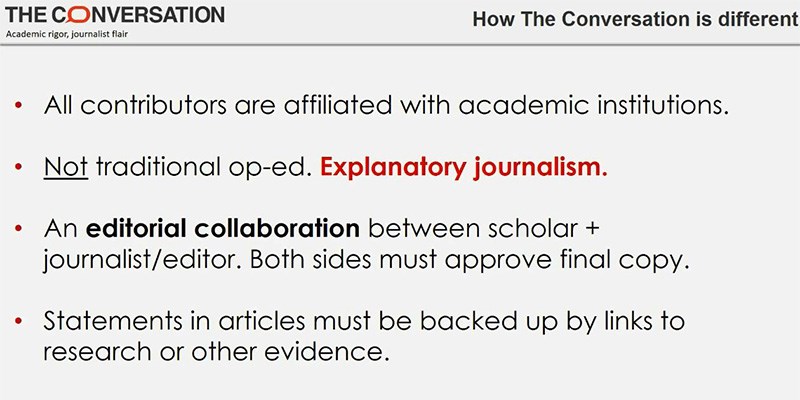The Conversation



 Image by Meg Moore
Image by Meg Moore
Psychology Prof. Meg Bond, a national expert on issues of diversity, empowerment and underrepresented groups in communities and organizations, wrote a piece about the dynamics of sexual harassment and the Supreme Court nomination fight in Congress that was picked up by news organizations around the country. The 2018 Distinguished University Professor had this to say about the process of developing a piece with The Conversation:
“The focus on how research can inform national dialogues is exactly where I think faculty should be putting their energy – if our research isn’t out in the public domain, we have missed a huge opportunity to make a contribution.
“Overall, the experience was very positive, and working with your office to get the pitch to The Conversation went very smoothly. It’s great that the university is developing this relationship.
“Developing the pitch was surprisingly fun – basically I quickly sketched out a few thoughts; it was OK that it was rough, and it did not require obsessing over details. Mainly it required stepping back and thinking about the big picture: What would my knowledge of scholarship in this area add to the national conversation?
“The process of working with the editor at The Conversation was intense but deeply satisfying. You need to be ready to invest energy in this – it was intense back and forth over just a handful of days. She engaged in a highly respectful and collaborative process – asking questions that sharpened my writing, and providing links and pictures to make it more effective. It was truly a dialogue – she pushed for clarity and evidence while also respecting that I as the author had the last say on what would be included in the final article.”